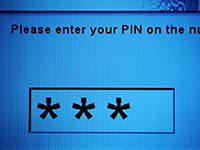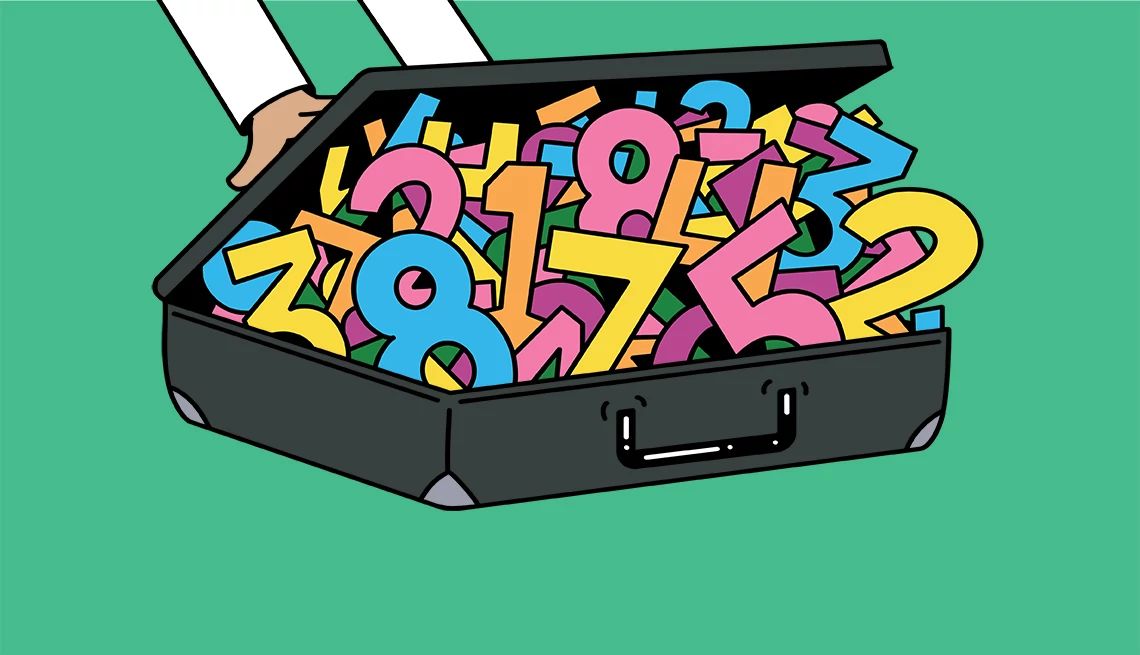
- Select a language for the TTS:
- UK English Female
- UK English Male
- US English Female
- US English Male
- Australian Female
- Australian Male
- Language selected: (auto detect) - EN
Play all audios:
| You may guard your Social Security number like a Rottweiler and change your computer passwords as often as your socks. But is your PIN (personal identification number) really
protective? Not if you picked it using common practices aimed at making it easy to remember. Trouble is, these numbers are also easy for crooks to guess. Here's how to safeguard the
four-digit gateways to your money and cellphone: • Never use your birthdate as a PIN. The bad guys know that people do this. A quick glance at the driver's license or other ID lets
thieves access money at an ATM with about one in 15 stolen wallets, according to British researchers. Tips for how to create a memorable PIN code that's not easily guessed by crooks.
Vincent Mo/Corbis • Don't use a string of numbers like 1234 or 1111. These rank as the first and fourth most common iPhone PINs. • Avoid your birth year — or any year from 1950 onward,
says Joseph Bonneau of the University of Cambridge, who coauthored the British study. • Avoid the last four digits of your Social Security number. • Your phone number? The birthdate of a
child or grandchild? Give them a pass. With an online search of public records, phone directories or newspaper announcements, an Internet-savvy scoundrel can get that information. • The
street or apartment number of your home, printed on your driver's license, is also easily found. So, what numbers _should_ you use? The bank-assigned one is typically "a safe
choice," says Bonneau, but consider these other smart strategies: • Sequences from a childhood phone number or a long-unused company ID is a good choice, as long as it's no longer
listed anywhere, says Bonneau. Also consider numbers that you dial frequently but that are hard to trace to you, like a pizza shop. SPEAK OUT! Run into a scam not mentioned here? Have
additional tips other readers could use? Speak out on our Scams & Fraud message board. • Thieves will have a hard time guessing that your favorite holiday is Halloween (1031). Also
consider PIN-izing a momentous event in your personal history, such as the date you hit that game-winning home run in Little League. • If you use a word for your PIN, try basing it on a
random phrase that you can recall, like 6488 for "now is the time" (NITT). • Four-digit PINs are standard, but go longer if you're allowed. The more digits, the harder to
crack. Once you choose a good PIN, never carry a reminder in your wallet. At the ATM, cover your hand when typing, to shield your PIN from prying eyes or scammer-installed hidden cameras.
_Sid Kirchheimer is the author of _Scam-Proof Your Life_, published by AARP Books/Sterling._


:max_bytes(150000):strip_icc():focal(319x0:321x2)/people_social_image-60e0c8af9eb14624a5b55f2c29dbe25b.png)




